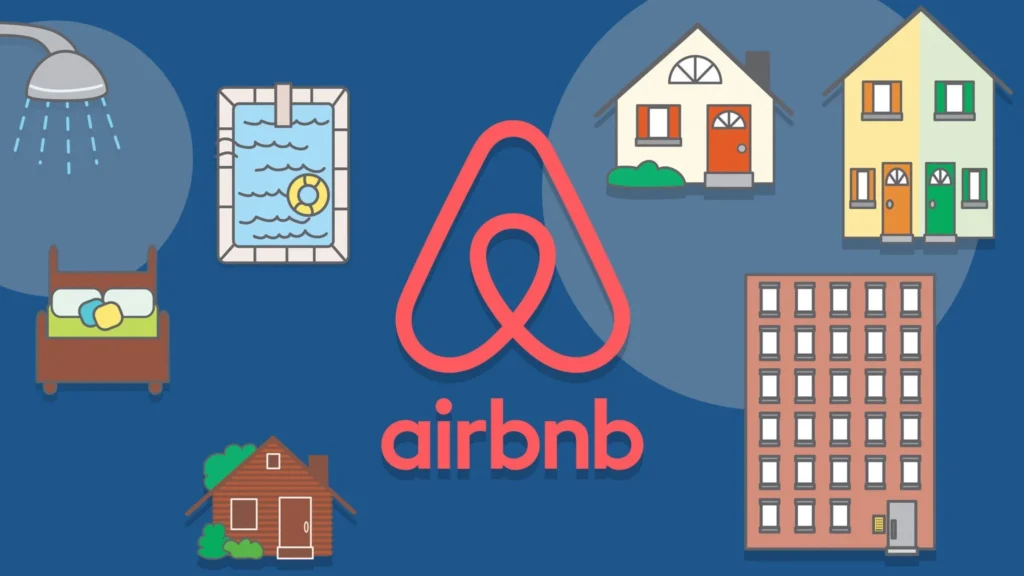Guests, hosts, and the planet will all benefit from Airbnb’s home-sharing model. A PESTLE analysis of Airbnb takes into account the factors affecting its political, economic, social, technological, legal, and environmental aspects.
In spite of Airbnb’s rapid global expansion, there have been some challenges along the way. There are several external factors that could affect the company’s future growth, from housing regulations to legal compliance and environmental concerns. For Airbnb to remain competitive, it must remain flexible as consumer behavior changes and government regulations tighten.
Introduction of Airbnb
Recent years have seen Airbnb revolutionize the lodging industry around the world. Their customer base is loyal and they have a global presence. Trooly Inc., Lapka Inc., etcetera are subsidiaries of the company, which is headquartered in San Francisco. Hosts and tenants are connected through Airbnb’s online platform all over the world. PESTEL analysis requires a thorough understanding of a firm’s basic characteristics.

Despite offering accommodations to tourists, the brand does not own a property. Tenants can stay in a shared home for a lower rate than hotels because they operate on a sharing business model. Through their philanthropic works and income opportunities, they help the economy grow.
Overview of Nintendo
| Company Name: | Airbnb, Inc. |
| CEO: | Brain Chesky |
| Company Type: | Lodging and Hospitality |
| Year Founded: | August 2008 |
| Employees: | 6132 (in 2021) |
| Annual Revenue: | $4.805B (FY2019) |
| Founder: | Brian Chesky, Joe Gebbia, Nathan Blecharczyk |
| Area Served: | Worldwide |
| Headquarters: | San Francisco, California, US |
| Operating Income: | $0.429B (in 2021) |
Airbnb PESTEL Analysis
In contrast to traditional lodging companies, Airbnb operates worldwide. There is an exciting growth rate for this company, which provides temporary accommodation for tourists. The company was affected by a variety of circumstances, both positive and negative. The company’s business was impacted by a number of factors.

Political Factors
The business model of Airbnb is very different from that of traditional rental companies. As a result, they face issues that negatively affect their business. In order to conduct business seamlessly, the company must abide by the political system and government laws of each country it serves:

Economic Factors
Compared to hotels, Airbnb is a cheaper option. Families with middle incomes travel a great deal from country to country. Airbnb is more affordable than hotels, so they choose it. The reason Airbnb is so successful is because of this.

Socio-cultural factors
With its worldwide presence, Airbnb pays attention to its positive impact on societies. Their services are available in 191 countries and more than 34000 cities around the world. With such a large area of operation, their socio-cultural environment has a significant impact on them.

Technological factors
In almost every aspect of Airbnb’s business, technology plays a crucial role. A website or an application is used to make initial bookings and rent. Using technology is the only option that is stable and viable for creating communication between people from different communities.

Environmental factors
As a lodging business, Airbnb has no direct impact on the environment. Nevertheless, the company focuses on increasing environmental awareness while maintaining a sustainable approach.
Legal factors
FAQs
Airbnb conducts a PEST analysis to determine how external macro environmental factors affect the company. Politics, Economics, Social, and Technology are these factors. Airbnb can adapt to changing market conditions by understanding these factors.
Analyzing Airbnb investment properties
Identify the types, locations, and prices of properties that you are interested in, and review your options.
Review and research other similar Airbnb properties to determine their profitability and conduct market research.
Expenses, liabilities, and associated costs should be listed.
A thorough analysis of booking patterns on AirBnB is crucial for a number of reasons: Understanding Market Trends: Analysis of booking patterns allows one to identify peak seasons, popular locations, and emerging travel trends. In order to optimize listings and pricing strategies, hosts need this information.
Its success can be attributed to its user-friendly platform and community-based hospitality model. In addition to providing accommodation, it is also able to provide a local and personalized experience.
Keeping occupancy rates high during off-season is a major concern for Airbnb hosts.
Most people consider VRBO to be the biggest Airbnb competitor. With over 2 million listings in 190 countries, it is the world’s largest vacation rental site. Since Vrbo is part of the Expedia Group, you are able to access its 112 million unique visitors monthly by listing on Vrbo.
Conclusion
With a massive user base, Airbnb has proven the success of its sharing model as one of the top lodging services. PESTEL analysis shows how Airbnb is affected or related to various factors, including political, economic, social, technological, and environmental factors. During their growth, they have faced several challenges and have put in place strategies to resolve them (fortune.com). In order to maintain sustainability, their business model should have a positive impact on the economy, society, and environment.







